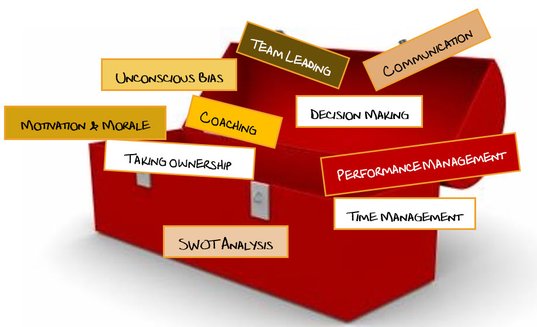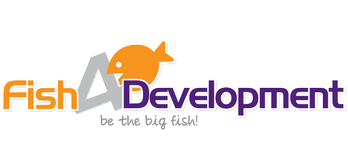
Management Training
Many managers working for small to medium sized companies would value training in specific management related skills. They are not looking for a long drawn out qualification courses, but would rather join an Open Programme with other like minded professionals. The management training on offer can do just that. Training meets the needs of managers who need the skills, but cannot commit to exam based learning.
Management courses are designed to be practical and hands-on, enabling the busy manager to gain confidence in their skills and competent to carry out their role. Whether you have been a manager for years, or days, the training can equip you to manage a team, get the most out of your people and personally develop.
Sally has fifteen years experience as a manager and thirteen years as a management consultant.
Follow link below for course outline:

Coaching and Mentoring
Coaching is one of the most effective methods of enhancing performance. It involves deliberate and specific activities that are designed to help people develop their skills by learning on the job. A good coach leads highly productive teams who are keen to learn new skills and as a result significantly increase the cost effectiveness and efficiency of their department/ organisation.
“I never cease to be amazed at the power of the coaching process to draw out the skills or talent that was previously hidden within an individual, and which invariably finds a way to solve a problem previously thought unsolvable.” ― John Russell, Managing Director, Harley―Davidson Europe Ltd.
“I absolutely believe that people, unless coached, never reach their maximum capabilities.” ― Bob Nardelli, former CEO, Home Depot
What the course will cover:
We will be going through the following topics:
- The managers’ role as a coach
- Coaching, Mentoring, or Training?
- Qualities of the effective coach
- Knowing yourself – what’s my style?
- Identifying learning needs
- Identifying individual learning styles
- Identifying barriers to learning
- Overcoming resistance to change
- Structuring the coaching session including contracting
- The four cornerstones of questioning
- The Skill/Will matrix
- Setting objectives and targets
- Coaching the new team member
- Motivation
- Managing and monitoring poor performance
- Feedback skills
- Evaluating the Coaching
We will also investigate the different models of appraisals including competency, goal setting, peer appraisal, 360 feedback and self-assessment

Communication Skills for Managers
Course Outline
Overview
This Communication Skills training enables delegates to enhance their personal and team productivity by improving their working and customer relationships. The programme will give delegates a greater awareness of the affect their behaviour has on others and increase their options when dealing with difficult people, conflict, or work-related problems. We will look at how to influence people in their decisions using persuasive communication. We will also learn how to become more assertive, so that we can negotiate good outcomes.
This course will cover how to:
- Communicate clearly and correctly to avoid misunderstanding and get your message across
- Develop and use your listening skills to solve problems, diffuse conflict, educate, and be a more productive
- Improve work relations through building rapport, listening and communicating positively
- Choose the most appropriate mode for communicating a message
- Communicate and negotiate with others in a more persuasive and compelling style
- Give and receive feedback
- Develop a range of responses to deal successfully with difficult people and conflict whilst maintaining effective working relationships.
- Responding appropriately to aggression in others
- Using the Transactional Analysis communication theory, to help you communicate better with others and not get drawn into unproductive arguments
- Planning your persuasive communication appropriately for the situation through objective setting and considering carefully likely responses
- Gain a greater understanding of your personal behavioural style and the effect it has on the performance of your team and colleagues
- Identify the styles that others are using, and bring out the best in them

Employee Forum Workshop
This is an interactive, thought provoking and fun workshop to help people represent others when taking part in meetings. Delegates will also learn how to provide feedback to colleagues on what took place and decisions made. The course will include a strategic focus on what works well and what could be improved within the organisation.
Who is it for
- Anyone who represents others / management in a meeting
- Staff or managers who take part in organisational consultation meetings
- Delegates who need to learn the art of taking part in constructive dialogue
- Anyone who needs to take part in joint decision making
- Teams that need to move forward that are a bit “stuck”
What is the role as an Employee representative?
- What is expected of the role
What is the purpose of our meetings?
- Time for reflection on what went well and what could improve
The qualities of a workplace representative
- Knowing your Locus of Control
- Communication skills
- Listening – looking at the barriers to listening effectively
- Questioning – Open and Closed questioning
- Transactional Analysis for Adult conversations
- Passing on the message
- Selling an idea
- Creative problem solving
Team building exercise
- Decision-making

Manager’s Toolbox
(3-day workshop)
Who is it for:
Anyone who hasn’t had any formal management training
Anyone who would like to improve their management skills
DAY 1
Managing Oneself
Four Steps to Effective Management
- What makes a good leader?
- Self-development and awareness using Johari Window
- Know yourself – your style of management and communication preference
- Changing your management styles to meet the needs of the individual with situational Leadership
Getting the message over clearly
How does our team communicate?
- My unconscious bias
- The ladder of Inference
- Communication activity
- Identifying barriers to communication
- The Six Cs of Communication
- How to be an Active Listener
- Building rapport through pacing and empathy
- Powerful questioning to bring about change in your team
- Choosing the right question activity
- Recruitment Questions
- Transactional Analysis and our communication preferences
Improving Performance with constructive feedback
- The role of giving (and receiving) feedback
- Natural reactions to constructive feedback
- Looking for the gold and not the dirt
- Summarising today’s activities
DAY 2
Managing Performance
- Coaching different approaches
- The Coaching model – GROW
- Practicing the GROW model
- Performance Management – getting the best out of your people including a brief look at:
- Appraisals
- Setting SMART objectives
- One to ones
- Return to Work interviews
Managing the Team
- The life cycle of a team
- Defining the Team Core Values
- Knowing more about Team roles
- Team Decision Making
- Managing change
- The Change Curve
- Building Trust
Managing your Time with useful Techniques
- Managing yourself and your time
- Action Planning Tools
- Record Keeping
- Pareto principle
- My Time Stealers
- Managing and chairing effective meetings
- Facilitation skills
DAY 3
Delegation
- Getting the monkey off your back
- Successful delegation
- The Problem Ownership Ladder
- Changing from doing to delegating
My Impact on the Organisation
- The blame game
- I own the problem
- What is my Locus of Control?
Motivation and Morale
- Motivational Theories
- Intrinsic vs Extrinsic
- Ten ways to Improve your team’s performance and morale
- Acts of recognition to boost morale
Decision making
- The process of decision making
- Different methods we can use
- Creative Problem-Solving solutions
- Managing change
- Handling resistance
Analysing what is going well and what could be improved
- SWOT of my organisation / team
- Rich Picture of my organisation / team
- Finding solutions
- How to sell your case
- Presenting our solutions using the Rhetorical Triangle
Action Plan for the future
